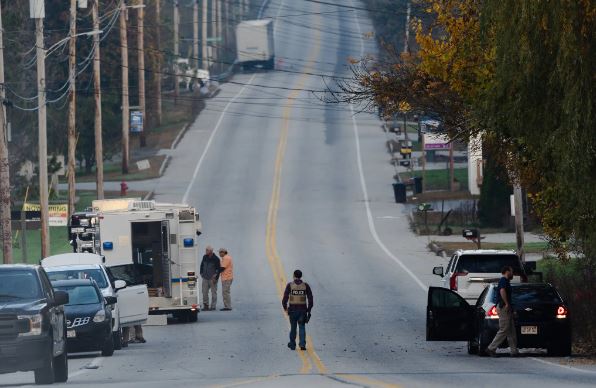Roughly three months before the tragic mass shooting in Lewiston, Maine, Robert R. Card II, the perpetrator who killed 18 people, attempted to purchase a firearm silencer but was denied by a gun shop owner due to his disclosure of mental health issues on a form. This significant detail has come to light, shedding more light on Mr. Card’s mental state prior to the shooting.
On August 5th, Mr. Card, aged 40, visited Coastal Defense Firearms, located in the neighboring town of Auburn, to pick up the silencer he had purchased from another store. Rick LaChapelle, the gun shop owner, confirmed this transaction. Coastal Defense Firearms had received the silencer from the previous store for Mr. Card’s pickup.
This purchase attempt is one of the first pieces of evidence indicating that Mr. Card acknowledged having mental health issues. ABC News initially reported this purchase attempt.
The investigation into the mass shooting has focused on Mr. Card’s mental health and his access to firearms. Mr. Card had served as an Army reservist and had a recent encounter with officials during a visit to a National Guard training facility in Peekskill, New York. Subsequently, he was evaluated at a mental health facility, according to a senior law enforcement official. However, the Maine Commissioner of Public Safety, Michael J. Sauschuck, stated that there was no information to suggest that Mr. Card had ever been involuntarily committed for mental health treatment.
When Mr. Card attempted to acquire the firearm silencer, he openly admitted to having mental health issues on a Form 4473, which is a federal document required to retrieve firearms and related equipment like a silencer. This form is instrumental in assessing whether an individual is eligible for the purchase.
It remains uncertain whether Mr. Card had previously indicated mental health issues on other forms related to his gun purchases. Officials have stated that Mr. Card legally obtained his weapons, indicating that he had passed background checks assessing his mental fitness to own firearms.
Federal law specifies two criteria that prevent individuals with mental health issues from buying or possessing firearms and related equipment like silencers. The first criterion relates to a court or other lawful authority determining someone to be “a mental defective,” often based on whether the person poses a danger to themselves or others due to mental health issues. The second criterion pertains to being “committed to a mental institution,” signifying that an individual was involuntarily admitted by a court or other authoritative body due to mental illness or drug use. Voluntary admissions for treatment do not fall under this definition.
The staff at the gun shop waited for Mr. Card to sign the document before denying him the silencer. Mr. Card, in response, remained courteous and said he would consult with his attorney and return later, but he never did.
In September, Sheriff Joel Merry of Sagadahoc County issued an alert to all law enforcement agencies in Maine after learning that Mr. Card had threats base he was assigned to. However, it is unclear whether other police agencies saw this alert.

